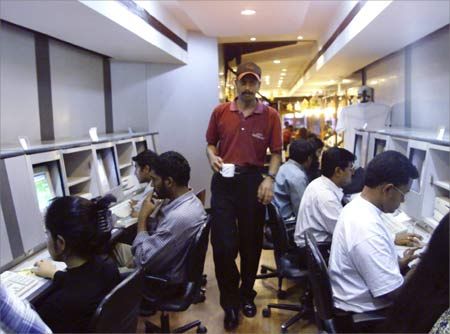The applicants included at least 255 people with doctorates and 150,000 graduates.
 Overwhelmed Indian officials are struggling to sift through applications after 2.3 million people applied for a few hundred low-level government jobs, a worrying sign that too many people are chasing too little work in Asia's third-largest economy.
Overwhelmed Indian officials are struggling to sift through applications after 2.3 million people applied for a few hundred low-level government jobs, a worrying sign that too many people are chasing too little work in Asia's third-largest economy.
Prabhat Mittal, the hiring manager for the jobs in Uttar Pradesh, a state with a population bigger than Brazil's, said he was stunned by the volume of applications. It would take more than three years to interview candidates.
The jobs pay Rs 16,000 ($243) a month and will involve making tea and passing files between government offices.
Requirements for the 368 jobs include having finished primary school and being able to ride a bike.
The applicants included at least 255 people with doctorates and 150,000 graduates.
"It is unbelievable," Mittal said. "It is going to be very difficult for us to devise an appropriate entrance exam."
The desperate scramble for jobs poses a challenge for Prime Minister Narendra Modi, who swept to power last year with the largest victory in three decades with a mandate to provide jobs and economic growth.
India is disproportionately young: half of the population is under the age of 25.
The country will add up to 300 million people - the equivalent of almost the entire population of the United States - to its workforce over the next two decades.
This so-called demographic dividend is one reason that some economists predict India will enjoy higher levels of growth than rivals, such as China, as they cope with ageing populations.
However, unless jobs can be found for this vast workforce then this prized asset could turn into a crippling burden.
The number of applications for the government jobs is 16 times the level in 2006, the last time the Uttar Pradesh government recruited for similar jobs.
India's vast bureaucracy is seen as an attractive place to work because it is difficult to fire employees.
Suresh Verma, a graduate, said he applied because "there is so much security" in a low-paying government job compared to the risk of being laid off in the private sector.
Last month, the Chhattisgarh state government cancelled plans to fill a handful of government jobs after being flooded with 75,000 applications.












 © 2025
© 2025